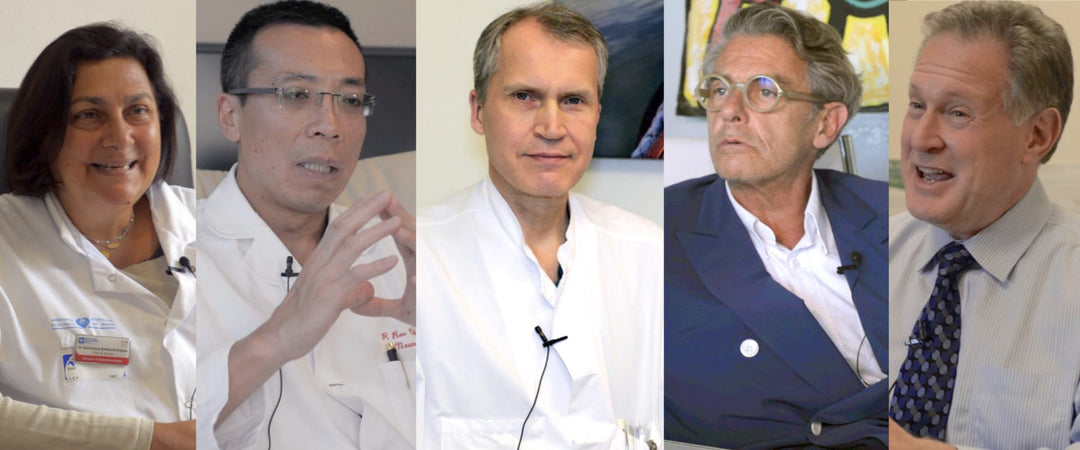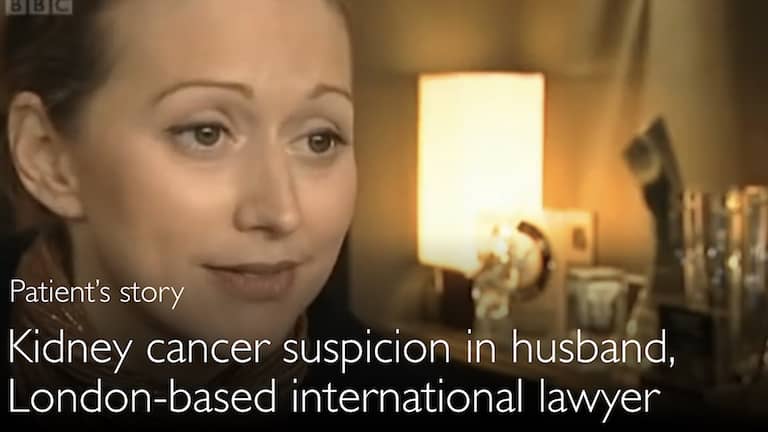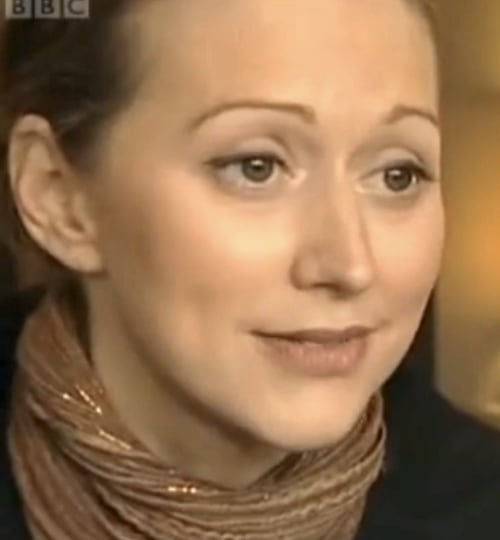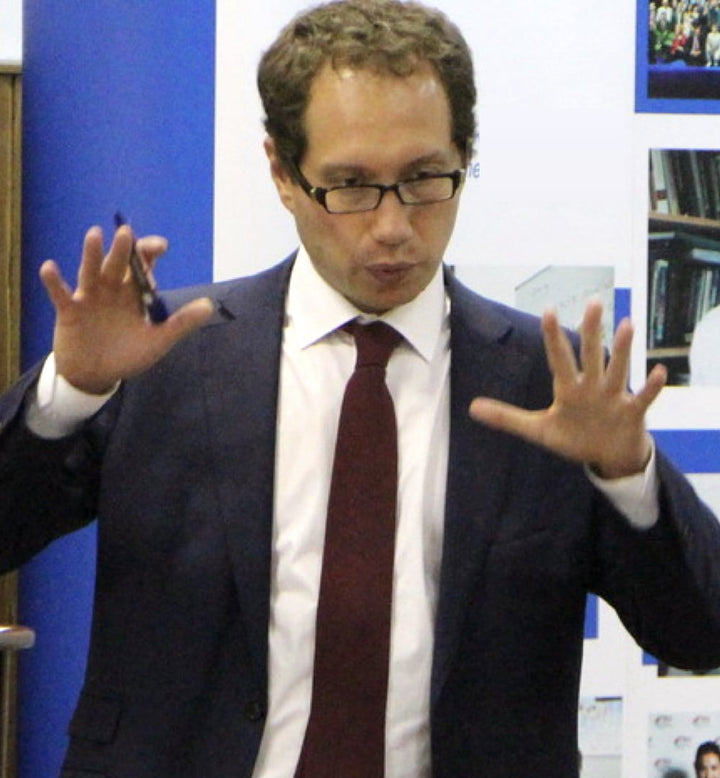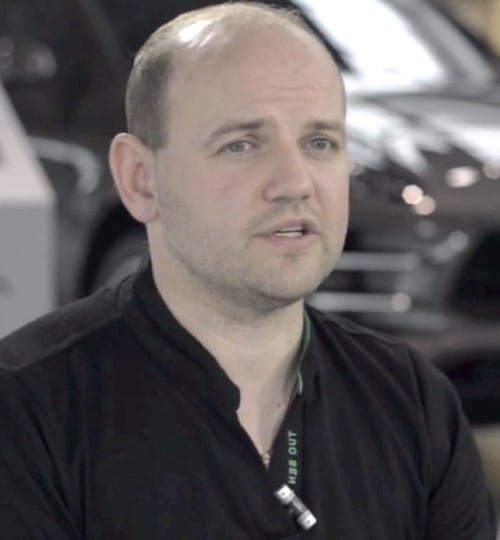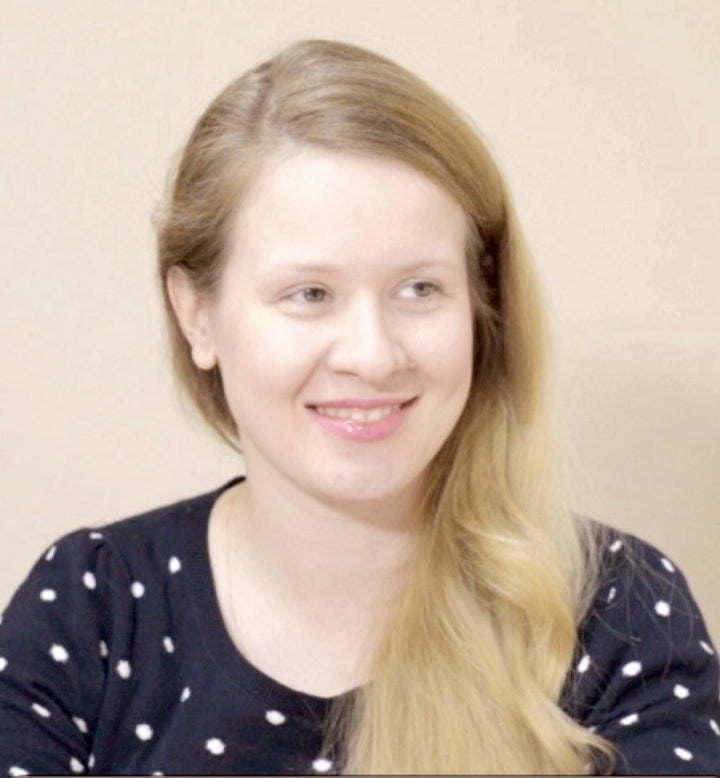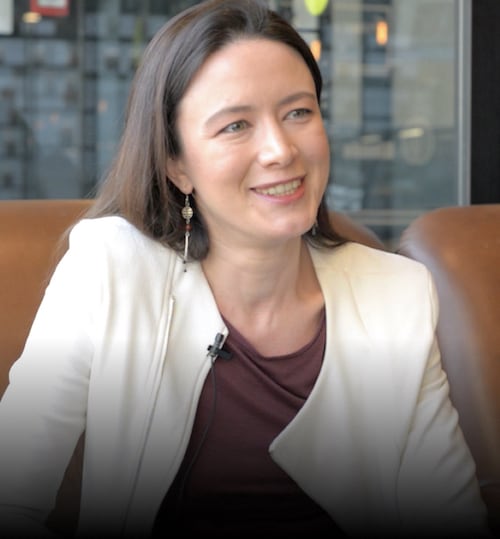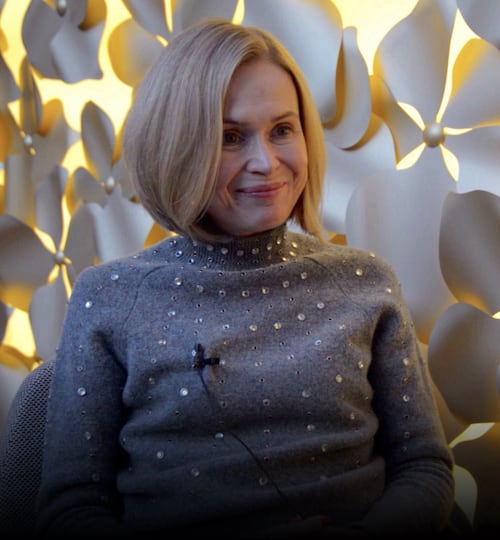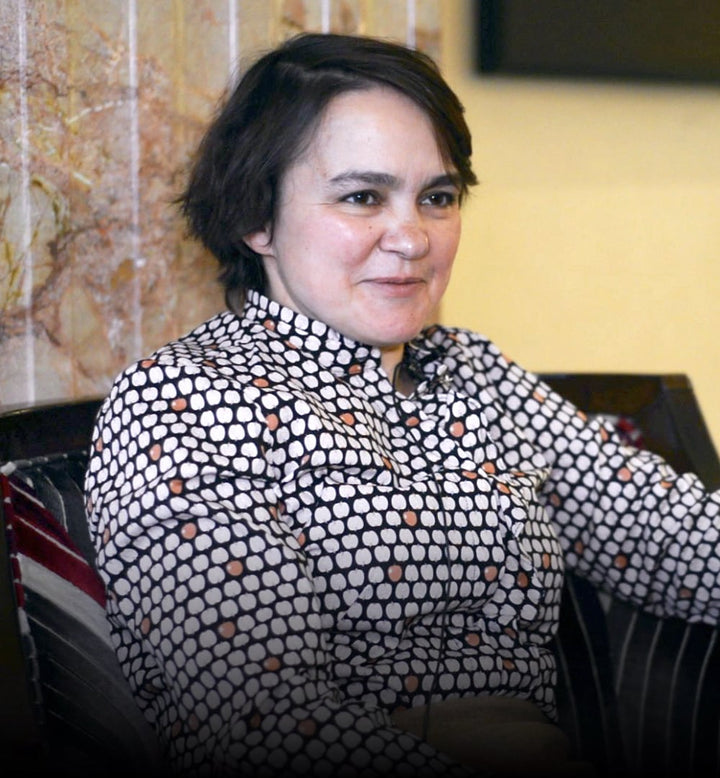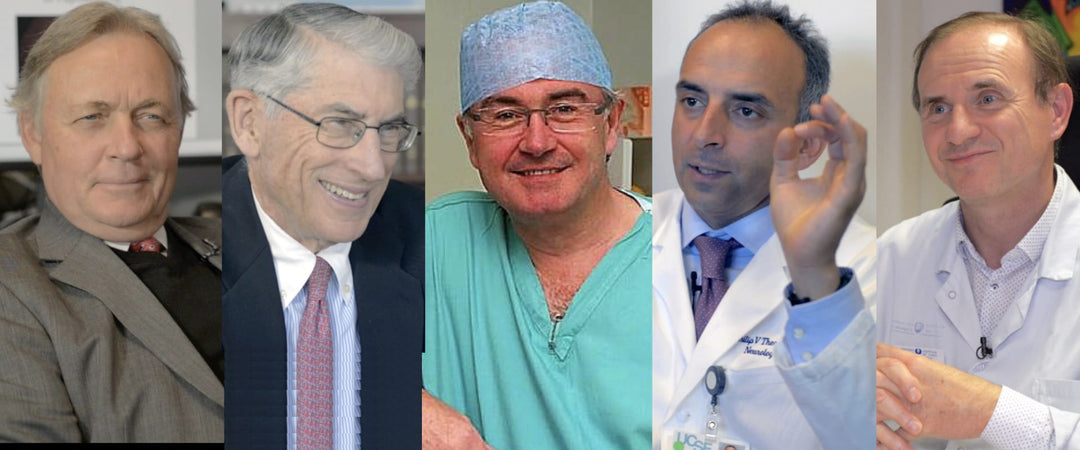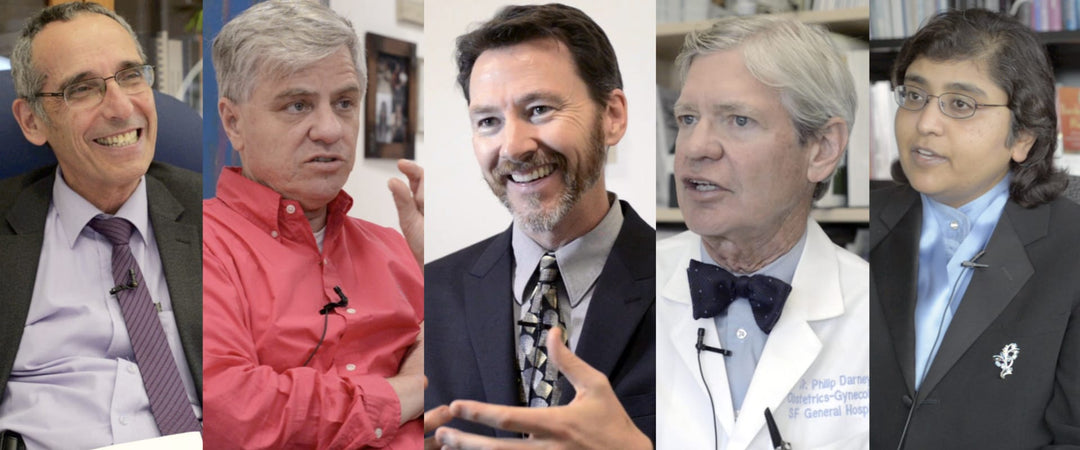Expert Video Masterclasses are Always Free
- There are no paywalls, ads, sponsorships, or affiliations with clinics or pharmaceutical companies.
- Our services fund our global patient education mission (in 10+ languages).
Our 3 services:
[all can be anonymous]
1. Get your treatment plan reviewed and refined to perfection.
Pricing range: $/€ 5995 - 59995
What we will do for you:
Medical problem is a "lock". Doctor is a "key". A key must perfectly fit in a lock to open it. There are no "master keys" in medicine anymore.
No two patients with the same broad diagnosis are the same. Our only selection criterion for medical experts is how precisely those experts fit your specific situation.
Our Multidisciplinary Team [MDT] expert panels consist of multiple top experts from different locations.
All experts work as a panel to review and refine your treatment plan.
Our method ensures objectivity and impartiality of review of your situation by all experts.
See "How It Works" section on our website to learn how we select leading medical experts who fit your situation precisely.
Medical experts that we select for each medical situation are affiliated with different top academic medical centers.
They are located in different regions and countries [50% USA, 30% Europe, 20% Rest of the World].
To find perfect-fit experts for you, we triangulate three sources of data.
(1) We search global medical research literature.
(2) We scout medical conference websites. We review abstracts of presentations and talks on cutting-edge treatments.
(3) We consult our extensive global network of leading physicians and surgeons.
See "How It Works" page for a full explanation of how you benefit from out method of selecting and working with a panel of experts, precisely selected for your exact situation.
Multidisciplinary Team [MDT] that we assemble for you reviews your situation from every angle.
They help you weigh multiple treatment options wisely. They suggest how to achieve the best possible prognosis.
See "How It Works" page to learn more about why we always work with a panel of leading international experts who are selected to match precisely your unique medical situation.
Our written report includes all views and conclusions of the expert panel that reviewed your situation.
What’s included:
- Expert panel insights: A detailed review of all expert opinions on your case.
- Background & supporting information: Context for each expert’s view, including reasoning and references.
- Relevant research links: Direct access to scientific literature for deeper understanding.
Why this matters:
- You have time to reflect. Study the report at your own pace and explore the included references.
- You can ask well-informed follow-up questions. Once you review the report, you may send us clarifications or additional inquiries.
- Further expert input is available. When needed, we consult the expert panel again to address your follow-up questions.
Our report typically contains over 10 pages. This is in contrast to a dry one- to two-page letter you get from most "second opinion" providers.
See "How It Works" page for a detailed explanation of our communication methods with you and with the experts who review your medical situation.
Hospitals and clinics routinely use their "second opinions" to make their only real recommendation: "Come to our clinic for expensive treatment".
It can be considered a conflict of interest, when medical second opinions are provided by institutions whose main business is provision of healthcare services.
Obviously, when a patient travels for treatment, repeats all diagnostic tests in that hospital, gets several rounds of consultations with multiple in-house doctors, it is a much more expensive proposition than doing a remote medical second opinion. It is true even when a second opinion is done remotely by the same experts.
It also "locks in" that patient for all further treatment at that hospital in the future. Potentially it limits other, perhaps better or cheaper options for further treatment.
So a hospital that provided second opinion has a strong business incentive to entice patients to travel to that hospital for treatment.
One hospital will not advise any patient to consider going for treatment by doctors in another hospital, unless both hospitals are part of the same business group or they have strong administrative links.
Conflicts of interest are very real in healthcare today.
To the contrary, we are 100% independent from any clinic, hospital, company, region, university or country.
We do not have any conflicts of interest to provide you with a remote opinion by a panel of leading physicians, precisely selected to match your exact medical situation.
See "How It Works" page to learn more about our independent approach to any medical situation, anywhere in the world.
More and more clients now request anonymous reviews of their medical situation.
Some clients ask for anonymous reviews because they previosuly experienced some bias in their interactions with physicians.
Some clients have a sensitive professional or societal status.
They may be worried that attaching their real name to the results of their diagnostic tests and the story of their medical situation may lead to a different kind of bias, known in medicine as "VIP syndrome".
Some clients just want an extra degree of privacy.
Our anonymous review option provides you with ultimate privacy and protects you from a "medical VIP syndrome".
See "How It Works" section on our website to learn more about benefits of anonymity for medical expert opinion reviews.
We do not "sell" you any hospital or physician. We do not advance interests of any group. We do not steer you towards any particular surgical or medical method of treatment.
We do not take a cut from your hospital bill. We do not receive any kickbacks ["referral fees"] from clinics and doctors for referring them patients for treatment.
Payments from clinics or doctors are a standard business model for "medical tourism" agencies and web portals that claim to list "best doctors".
In reality, all these agencies and web portals have zero expertise or desire to evaluate a fit between any given patient and the doctors or hospitals that they may "recommend" for treatment. They just blindly chant to everyone, "we are the best for everyone and for everything".
We don't have any advertisements or sponsorships on our website or anywhere in our venture.
We are not funded by venture capitalists or other investors, who demand revenue growth by any means. This often leads to cutting corners. It creates multiple conflicts of interest.
See "How It Works" page to learn more about our independent approach to any medical situation, anywhere in the world.
"Medical second opinion" is the dominant term for the description of remote medical opinion services. It is important for search engines, but we consider "second opinion" term misleading.
This is why. A patient and their family might feel "mission accomplished" when they have received a "second opinion" somewhere, irrespective of what was contained in that "second opinion". That is not necessarily true.
The goal of every patient is to obtain not only generally correct, but also precise and complete diagnosis.
Then every patient's goal shifts to obtaining the best possible treatment, which will hopefully result in the best possible prognosis.
Many patients have a diagnosis that is too broadly defined or not precise enough.
Consider a diagnosis "estrogen receptor-positive breast cancer" or "severe mitral valve prolapse". This is not precise enough for a precision medicine era. These diagnoses might have been considered sufficiently precise yesterday. But today, that is not true.
There must be a precise molecular and / or quantitative functional characterization of current stage of pathological process. This characterization has to be accomplished by mulitple modern modalities of diagnostic testing.
Only then it is possible to provide a precision medicine-based treatment plan, to ascertain the most likely prognosis, and to determine how to improve the prognosis.
It may take one expert opinion or it make take ten expert opinions to get to the most precise characterization of the disease and the best possible treatment plan.
It takes a MultiDisciplinary Team [MDT] discussion by experts who precisely fit patient's clinical situation. They have to weigh all treatment options appropriately.
Just because a group of physicians in any hospital calls themselves a "tumor board" or a "MultiDisciplinary Team", it does not automaticlaly mean that they are the best experts for a given patient. They might be good for one patient but not good enough for the next patient.
That has to be understood by all patients. And the term "second opinion" potentially glosses over such crucial nuance.
Getting the best treatment plan possible is not about the semantics and fancy words. It's about the depth of expertise of doctors. It's about how closely the knowledge of a surgeon or a medical specialist fits the nuances of patient's specific medical situation. That brings the best outcome of treatment for any patient.
That's why we prefer to use the term "medical expert opinion" to describe our services. Precision matters!
Our services are purely informational and educational.
We help you to educate yourself about crucial aspects of your medical condition, and find the best medical experts in the world for your specific medical situation.
No “patient-doctor relationship” is established between our clients, us, and the medical experts we identify and engage to help you solve your medical challenge.
Only a specific medical clinic can establish a formal legal "patient-physician" relationship between a patient and a physician.
We are not a medical clinic.
However, our clients around the world find our services crucial in helping them navigate any medical challenge, anywhere in the world, and in the best possible way.
From our customers
2. Find perfect surgeons or medical specialists to perform your treatment.
Pricing range: $/€ 5995 - 19995
What we will do for you:
Your surgeon or medical specialist is the most important prognostic factor in your treatment. It is crucial to find the best possible doctor to perform your treatment.
This is what the world's leading physicians and surgeons think about complexities and pitfalls of choosing the right doctor for any treatment.
[See video "How to choose a surgeon. Leading doctors share wisdom", parts 1 and 2]
"You have more information about a steam iron you want to buy than about your neurosurgeon."
"Some surgeons are very experienced but they do the operation in a wrong way."
"Experience is not everything. Knowledge is the most important thing."
"There is a huge challenge that goes with being a cancer surgeon. Surgery by itself is a failure in many abdominal cancers."
"I think well-trained surgeons can be found everywhere in the world. Surgeons have their own judgment, and that’s something that’s not constant."
See "How It Works" page to learn how you benefit from our method of selection of knowledgeable and experienced doctors for your exact medical situation.
Different patients have different circumstances and preferences where they would like to get their treatment done.
For many types of treatment, there is a regional or national availability of specialists who fit the situation very well.
For some treatment options, it is best to travel across the world to a perfect expert who has the most knowledge and experience in treating your disease.
Traveling nationally or internationally is not necessarily the most expensive option. If you go to the specialist who perfectly fits every nuance of your situation, your treatment and recovery is often much faster.
Risks of disease recurrence and necessity of additional treatment may be significantly reduced, if a perfect doctor performs your treatment right from the start.
This may reduce your overall costs of treatment now and in the future.
We will be happy to determine together with you how wide geographically should be our search for a perfect doctor for you.
We are confident that we will find several perfect doctors for any situation.
See "How It Works" page to learn how you benefit from our worldwide, unbiased search for perfect medical experts for any clinical situation.
Healthcare is a notoriously non-transparent industry. Why? Business interests, of course.
Most doctors agree that it's difficult or even impossible for a patient to use the criteria that truly matter in a selection of physicians for treatment.
Yet the physician is the most important prognostic factor in any disease.
We are paraphrasing the words of a renowned cancer surgeon from Switzerland. It is true for any disease and for any physician.
We will explain to you exactly why we suggested specific surgeons or medical specialists to perform the treatment that you need. We will provide you with objective criteria for our suggestions.
See "How It Works" page to learn how you benefit from our transparent multi-dimensional method of medical expert selection.
Leading surgeons or medical specialists are incredibly busy. Appointments with them are booked out months in advance.
Yet many pathological processes cannot wait that long.
When we identify several experts who could perform your treatment, we pre-screen your clinical case with them in advance.
We confirm the intended method and duration of your treatment. We get their answers to your questions.
This method helps a busy surgeon to become familiar in advance with your clinical situation and story [or "case" - as doctors say].
Therefore, when you show up for an appointment with that doctor, all major questions have already been resolved and a plan of treatment has been decided upon in advance.
Therefore, you get to the actual surgical operation or start a medical treatment potentially much faster than other patients with a similar diagnosis.
Here is a real-world example.
One of our clients had a serious fast-growing tumor.
We found and engaged one of the world's foremost surgeons for that specific type of tumor. The entire surgical team assessed her clinical case in advance. Doctors reviewed MRIs and CTs that we sent to them electronically. They were presented with crucial laboratory data and a concise well-structured clinical story.
When the patient showed up at that surgeon's office, she saw at least 15 other patients with a similar tumor. They were all waiting in line for an apointment with that surgeon.
When the surgeon walked into his office, he recognized the name of our client and asked her to come in.
This was not because we somehow curried a favor with that surgeon.
This was because the surgeon knew all about her clinical case already. Therefore, a meeting with this patient was the easiest and fastest among 16 patients he had to see on that day.
He did not have to study her MRIs and CTs, he did not have to anticipate a long discussion about treatment options.
Meeting our client was his easiest choice, so he chose it to be his first appointment in a long clinic day.
The appointment was on Friday. Our client was scheduled for surgery for Monday. She did not have to wait for weeks to get on the operating schedule.
See "How It Works" page to learn how you benefit from our process of working with the world's busiest doctors to facilitate your treatment in the most efficient way.
The criteria that patients often use to select a doctor to perform their treatment may not be relevant to the outcome of their treatment. That is, if a patient has any opportinity at all to chose his or her physicians.
For example, patients pay attention to doctor's titles and displayed regalia, "professorial looks", design and splendor of an office, "palace manners" of nursing or office staff.
None of it matters for an outcome of treatment.
But that is what most clinics also pay attention to because they know the importance of those tangential criteria for the decisions patients make, and therefore for the revenue that clinics get.
Again, none of those criteria matter for the results of surgery or medical treatment. And doctors know it.
What really matters is the knowledge, the choice of treatment strategy, the techncial skills, the versatility, the degree of fit between an expert and a precisely defined issue that a patient has, and the coherence of a clinical team.
These are the crucial metrics for any medical or surgical treatment.
And none of the criteria that truly matter can be reliably assessed by a patient during an office visit or website browsing.
"Head of the Department" might not be the most suitable doctor for a specific patient. The most senior doctor at a hospital may not have the right knwoledge and skills for a subtype and stage of disease that a patient has.
Moreover, ideally, a surgeon must have cross-training in several specialties (for example, open surgery and endovascular procedures). This ensures a holistic, unbiased assessment of a patient.
If a doctor is comfortable with or capable of doing only one method of treatment, this doctor will likely tell a patient that a patient needs exactly that method for his or her treatment. But it may or may not be the best method for a specific patient.
"If you only know one [method of surgery], you do all of them the same way" - said an eminent cerebrovascular neurosurgeon.
Patients often seek the most experienced surgeon or physician. But "experience is not everything. Knowledge is the most important thing." These are the wise words of a renowned cancer surgeon from Stockholm.
See "How It Works" page to learn how you benefit from our objective and transparent method of selecting perfect surgeons or physicians for your medical situation.
Most doctors will be eager to do your surgery or non-surgical treatment irrespective of how perfectly their skills match your specific situation.
It is especially true for "VIP patients", who often demand and get the attention of a "Head of the Department" or whoever is the most famous doctor in a hospital.
But "Chief of Department", or the most senior physician or surgeon may lack knowledge and necessary skills due to advancing age or high burden of administrative duties.
Medicine is a big business. Surgery departments dwarf medicine departments in revenue generation at any hospital. It's hard to refuse any patients that bring them revenue.
Here is an analogy.
Patient's medical situation is like a Formula 1 car. It is complex, expensive, unique.
A surgeon is like a Formula 1 car driver. Driving complex, expensive, unique cars is what race drivers do.
Put a Formula 1 car in front of ten drivers and ask: "Who is the best to drive this car?". They will all say "I am the best!". And they should all say that!
But some drivers are better than others. Some drivers have skills that fit better specific cars. Their skills might differ by details that are imperceptible to a casual observer but crucial for the outcome of the race.
Similarly, some surgeons or medical specialists fit certain medical situations much better than others. Even when all doctors are equally highly regarded and credentialed.
See "How It Works" page to learn how you benefit from our unbiased worldwide method of medical expert selection.
Achieving the best possible outcome in medicine is all about the degree of fit between a given doctor and a given medical situation at hand. The fit should be precise and perfect.
Several doctors could all be highly regarded and credentialed. But some doctors might fit a particular medical situation much better than others.
Do not confuse regalia and "grey hair" with the right skill and deep knowledge for a specific situation.
There may be a less senior doctor at the same department who has deeper knowledge and better skill set for your specific situation. But you will never know it if you use typical criteria for doctor selection.
Did you know that patients survive better when senior doctors are AWAY from a hospital to attend a national medical conference?
Two surgeons of the same seniority and the same general specialty can have a vast difference in knowledge about a particular subtype of the same broad diagnosis.
But a patient with that diagnosis may never discover a critical difference in knowledge between those two surgeons.
Talking to a surgeon or browsing their biography would not help you to determine how precisely the skills and interests of that surgeon fit your precisely defined issue.
This is all true, of course, for medical specialists and non-surgical situations too.
See "How It Works" page to learn how you benefit from our detailed and transparent approach to selecting and working with leading medical experts worldwide.
3. Family Membership - Optimize health trajectory for all your family.
Pricing range: $/€ 5995+ per year.
Our extensive experience of working with clients around the world showed that those who purchase our Family Membership often care for at least one person of a "-1" generation. It could be a parent, an aunt or uncle.
Indeed, it is often parents and other "-1" generation persons who have the most immediate benefit from being included in our Family Membership.
Our clients also usually have partners and children.
Therefore, we define "family" to be broadly consisting of (1) parents or other "-1" generation relatives, (2) a person who buys Family Membership and his or her partner, and (3) their children.
We will provide the following services:
Most people have an assortment of diagnostic test results and clinical evaluations, hospital discharges, physican office notes.
Typically, all this information is in disarray, incomplete, and outdated.
Our experience shows it's futile to enforce a single format for structuring medical information in different regions and healthcare systems.
Our solution is practical: we listen to your preferences and your individual circumstances.
We then help you to assemble crucial health information for your family members in the way that works best for your situation and your locale.
The most important information is the one you can immediately access and provide to any healthcare professional in any planned or urgent situation. That's what we help you to accomplish.
We will help you to identify the health areas to watch, issues to follow. We will do an audit of preventive measures in accordance with the guidelines from the US- and EU-based professional medical societies.
Optionally, we would be able to research methods to reduce individual health risks that go beyond formal preventive clinical guidelines.
We will present information to you with specific references to scientific papers. Then you will be able to make your own judgment whether those methods could benefit you.
We always encourage our members to discuss all preventive health actions with their regular primary care doctors or other clinicians who are well familar with their health.
We do not provide medical services, all our work is purely educational and informational.
If you require remote expert panel opinions on any medical issue or identification of several options of perfect surgeons or medical specialists for treatment, we will provide all these services at 10% discount.
It may be possible to identify relevant experts in countries and regions outside EU-27 and the US. However, it often takes a little longer to find and make contact with the relevant expers in other regions.
We will inform you immediately of our ability to identify relevant doctors for you in a location and specialty of your chosing.
We select experts based solely on how well they fit the exact medical challenge at hand (see How It Works for more information).
Our Family Membership clients often ask us to assess the relevance of a specialist physician or surgeon they are planning to visit, to their health challenge at hand.
We will evaluate within 48 hours the relevance of expertise of any physician that you are planning to visit.
No country has a uniform distribution of medical expertise.
For example, 35% of physicians (and 70% of female physicians) in Germany would not recommend their hospital as a place to receive care. See Figures 10 and 11 in the report from Bain Consulitng on healthcare in Europe (free access via web link).
Sometimes our Family Members would like to get feedback on a diagnostic plan, treatment options, or even specific medications that they were prescribed.
Every situation is different, and some of these assessments or discussions may require an extensive expert panel review of the medical situation.
However, there are often relatively minor situations and requests that can be fulfilled internally by medical literature search.
We can connect via any asynchronous communication method - a messenger or email. We do not interact via phone or video calls [because it's inefficient].
See How It Works page for a detailed discussion of our preferred communication methods.
Many medications that are used widely in a particular market, are not approved in other major markets, such as the US or Europe.
This may be a signal about medication's efficacy and safety. Sometimes, licensing authorities explicitly say why they did not approve a particular medication.
There may be medical research articles discussing the merits and circumstances of a medication's approval. You generally want to know such information on every medication you or your family member uses.
We will help to review any prescribed medication regarding published evidence-based efficacy and safety data. We review communicaitons from the US FDA and European Medicines Agency.
This will ensure that all medications used by our clients are approved and tested in major markets.
Subscribers to our Family Membership at times need some help in determining priorities and options when they approach any health issue in their family.
We can provide a brief structured roadmap on how to approach any health issue.
We typically provide written answers to any medical question from our members within 24 hours. We also usually include one or two links to relevant medical research articles.
We communicate via WhatsApp or other messengers, or email.
See How It Works page for a detailed discussion of our preferred communication methods.
Ask us any question:
Many "checkups" are either hype or obsolete:
A standard list of diagnostic tests on most health checkups is a ploy for clinics to increase their revenue. It has little to do with an early diagnosis of any disease at a preclinical stage.
A British Medical Journal-published meta-analysis of 16 clinical trials that compared health checkups with no health checkups concluded.
"General health checks did not reduce morbidity or mortality, neither overall nor for cardiovascular or cancer causes, although they increased the number of new diagnoses. Important harmful outcomes were often not studied or reported."
Canadian guidelines have recommended against general health checkups since 1979.
Here are just two examples of diagnostic tests that are frequently done during checkups. Both are generally perceived as having high value. It is Mamography and Exercise Stress Test.
Let's take a look at important nuances of these diagnostic tests.
Mammography.
Most people will consider mammography a “life-saving practice”. And yet...
1. This is what a New York Times article in 2014 said about the largest and the longest study of mammography results, published in British Medical Journal.
"One of the largest and most meticulous studies of mammography ever done, involving 90,000 women and lasting a quarter-century, has added powerful new doubts about the value of the screening test for women of any age.
It found that the death rates from breast cancer and from all causes were the same in women who got mammograms and those who did not. Mammography had harms..."
2. JAMA, Journal of American Medical Association, published a well-known study on mammograms, which concluded the following.
“Probability that a woman with mammography-detected breast cancer has, in fact, avoided a breast cancer death because of screening mammography is now likely to be well below 10%. It is important to use this information to put cancer survivor stories in their proper context.”
3. Swiss Medical Board recommended in 2014, per NEJM [New England Medical Journal] article, "that no new systematic mammography screening programs be introduced, that time limits be put on current programs, that screening quality be evaluated, and that women be given clear information regarding benefits and harms."
We are not saying that mammography is not a useful screening diagnostic test. It is useful. But it is an illustration of a simple fact. All screening and diagnostic tests work best when they are done with a thorough understanding of patient's history and individual risks.
Cancer screening statistics is very complicated.
Read this page on a US National Cancer Institute website: "Crunching Numbers. What Cancer Screening Statistics Really Tell Us". You will see that there is a lot of room for marketing you various illusory "precision medicine programs" and "personalized checkups" by anyone.
Exercise Stress Test.
You are very likely to have an Exercise Stress Test during any health checkup. How useful is Exercise Stress Test? It depends.
Exercise Stress Test predicts well that you are statistically unlikely to have a heart attack soon if your exercise stress test is currently negative. That's all it does, and if you think about it carefully, it leaves a lot of unknowns regaridng your risks of cardiovascular disease.
Even in people who had acute chest pain, the "diagnostic yield" of Exercise Stress Test was just 2.5%. That study concluded that "in patients with acute chest pain, the yield of routine use of noninvasive testing for Coronary Artery Disease was minimal".
In women, the value of Exercise Stress Testing is even more complicated. Most clinical studies regarding Exercise Stress Test were done in men.
But in contrast with men, there was no relationship between positive exercise stress test results and all-cause and heart disease-related mortality in women.
Exercise Stress Test is also less useful if you are trying to assess your long-term risks of heart disease. Most people who do health checkups are certainly interested in their long-term risks to health.
How long is "long-term"? How about 20 years? 30 years? If you are 40, you do want to know your risks of heart disease when you are 60.
You may also want to assess the functional and structural status of your coronary arteries in more detail.
That's where your Exercise Stress Test results today are not that helpful.
In fact, there is serious scientific data that questions commonly applied risk criteria for heart disease, especially in younger people. Take a look at Figure 3 in this research article ["Risk Factors and Coronary Atherosclerosis in Youth"]. You will see how the risk of heart disease balloons with extension of time beyond the standard "10 years".
Exercise Stress Test also has risks.
There are reports of acute myocardial infarctions that happened soon after a negative exercise stress test. Yes, the reports are rare, but heart attacks after negative exercise stress test do happen.
"The tide has turned against exercise stress testing of otherwise healthy men concerned about their heart risk," - says a Harvard article on the subject.
When you review in detail most diagnostic tests used in standard health checkups, they turn out not to be useful for long-term risk prediciton or detection of any disease at a subclinical stage.
The same is true for many new "precision medicine" virtual practices that peddle you "personalized programs" for following your cholesterol, sleep pattern, heart rate, etc. All those indices are useful, but you don't need to monitor most of them constantly and perpetually.
You don't eat the same food you would have eaten a century ago, you don't breathe the same air. You don't have the same lifestyle, work-rest balance or sleep patterns. You touch and interact daily with completely different materials than people did 100 years ago.
So the risks to your health that you are facing today are not necessarily the same risks that the medical canon described based on your anatomy and physiology, which were formed not just a century but millenia ago. So you have to go beyond the canon to assess and mitigate risks to your personal health.
You also expect to live decades longer than people who lived a century ago. Moreover, you expect those decades to be much healthier too.
So your assessment of risk-reward balance of preventive measures must also be different.
Your tolerance to risk-reward ratio of the preventive measures you employ to increase the odds of those healthy extra decades of your life might also be higher.
The risks to your health today often hide in plain sight, they continue to evolve.
Therefore, you need to tackle the actual risks you personally encounter every day, in your real life. You must recognize them correctly and assign due value to their magnitude.
You cannot rely only on some hypothetical, averaged, theoretical risks decribed in the textbooks.
Yes, there are several screening tests that – if their results lead to appropriate actions – can add up to your healthy decades of life.
But neither diagnostic tests nor risk mitigation strategies can be indiscriminately applied to everyone. But that's exactly what most health checkup programs do.
You also must recognize and refute marketing nonsense that you are bombarded with in social media and internet. It's not easy to do!
Passing a cookie-cutter health checkup misses most identifiable and avoidable health risks. It can create a false sense of security.
At the same time, standard health checkups “reveal” useless “findings” that have zero clinical meaning. This surely generates more revenue for clinics, of course, but it leads only to more anxiety for you.
We do not suggest you do a laundry list of diagnostic tests. We do not sell you one-size-fits-all package of mundane tracking and unproven analytics.
We dive into your clinical history, we review the diagnostic tests you have already done, we carefully study your extended family history. This is the basis of a truly personalized checkup plan.
We do value cutting-edge technology.
But we also recognize the long-tested value of the Clinical Method.
We also have no reasons to distrust those physicians who might have already examined you in person many times, and wrote an extensive history of your health trajectory.
Therefore, an extensive analysis of what you already have is a good start.
Then comes a suggestion of a few diagnostic tests that might fill in gaps in assessment of your health risks based on already available information. Such tests may reveal "weak links" in your organ and system functions.
Then we review the latest medical research in a relevant focal area. We reach out to leading experts who specialize in potential "weak link" areas of your body function.
We discuss our findings with the specialists who have the knowledge and experience to pick up signs of your personal health risks from your data and its analysis.
They may also suggest select additional tests for you to consider.
They provide an ultimate insight into risk mitigation strategies that are specific to you and your personal health goals. Your actions to optimize your health trajectory must also be in line with your risk-reward ratio tolerance.
Our written report to you will clearly break down your options to reduce health risks and "optimize health trajectory", in words of one of the precision medicine experts.
We will discuss the strategies that the experts and medical research review identified from your available data, screening programs and diagnostic tests that you have completed.
We will provide you with background information and available scientific evidence for the efficacy and risks of all suggested interventions.
Our typical written report contains over 10 pages.
80% of the time we make at least three significant health suggestions that materially change a long-term health risk profile of our clients.
According to the longevity research experts we interviewed, anyone can slow down or even reverse to some degree the aging process, at any age. This is certainly a message of hope!
We hope that you will start optimizing your health trajectory today.


